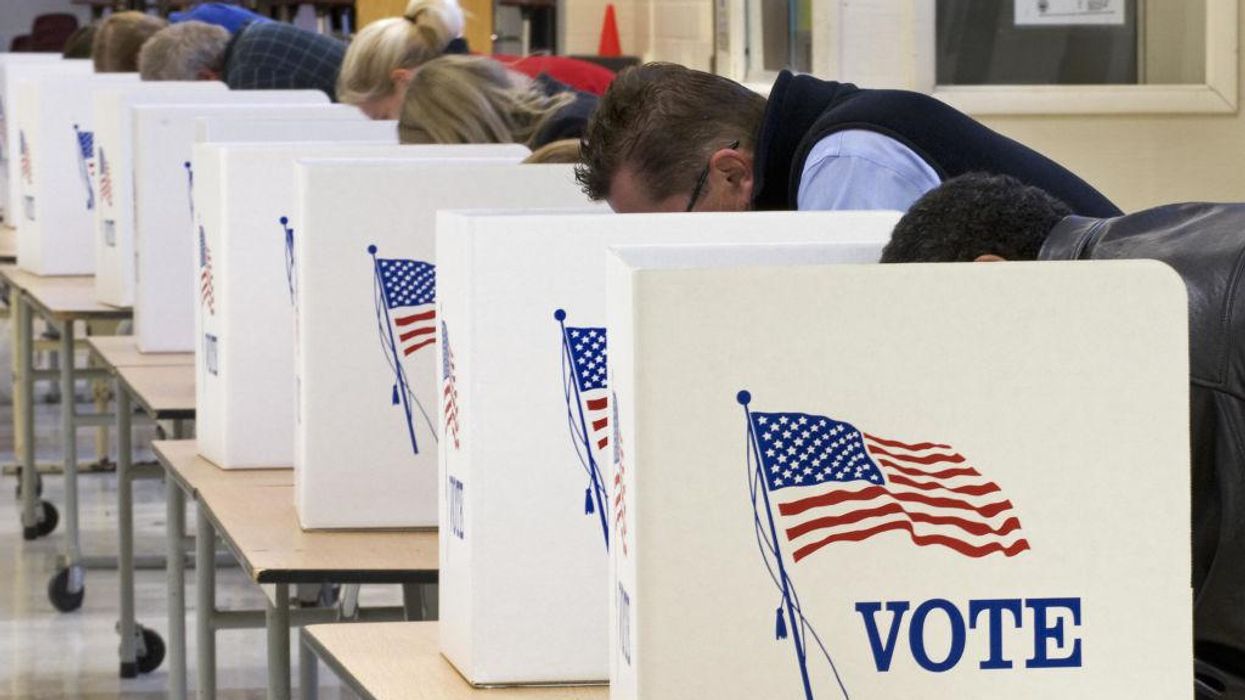Richie is co-founder and senior advisor of FairVote.
It’s time for “safe state” voters to be more than nervous spectators and symbolic participants in presidential elections.
The latest poll averages confirm that the 2024 presidential election will again hinge on seven swing states. Just as in 2020, expect more than 95 percent of major party candidate campaign spending and events to focus on these states. Volunteers will travel there, rather than engage with their neighbors in states that will easily go to Donald Trump or Kamala Harris. The decisions of a few thousand swing state voters will dwarf the importance of those of tens of millions of safe-state Americans.
But our swing-state myopia creates an opportunity. Deprived of the responsibility to influence which candidate will win, safe state voters can embrace the freedom to vote exactly the way they want, including for third-party and independent candidates.
Many voters worry about “wasting their vote” on candidates who can’t win. But safe-state voters are free to vote their conscience. In 2020, 36 states were won by at least 10 percentage points. Those states are a lock for Donald Trump or Kamala Harris even if millions of voters abandon them for minor parties.
Robert F. Kennedy Jr. recently embraced America’s swing-state division. He suspended his independent candidacy only in the swing states to avoid being a spoiler. yet will offer voters a choice elsewhere. If you like Libertarian Chase Oliver, the Greens’ Jill Stein, or independent Cornel West and live in a safe state, give them your vote. Indeed, if they joined RFK in pulling out of swing states, they might earn even more votes because voters will know they’re not “spoilers.”
I certainly don’t suggest safe-state voters skip voting nor ignore down-ballot races — our votes are our voice wherever they’re cast. I’m not suggesting that either Harris or Trump aren’t the first choice of most Americans, nor that swing state voters can ignore the pragmatic reality that their states will decide the White House. But for voters who seek dramatic change, you have freedom in the safe states — and should use it.
Long-term, states can extend this voter freedom by adopting the ranked-choice voting system used by voters in Alaska and Maine and on the ballot in four states this November. With ranked-choice voting, you can support your favorite as your first choice. If that candidate doesn't have a chance to win and there's no majority winner, your ballot counts for your next choice among the strongest candidates in what amounts to an instant runoff. It ends “spoilers” and upholds majority rule.
Making us all swing-state voters demands an even bolder approach. It starts by recognizing its root cause. In 1960, 1976 and 1992, nearly two-thirds of states were battlegrounds — and they regularly shifted between elections. Now our system is far more rigid.
Our Constitution’s framers would be appalled at how our calcified partisan division marginalizes most Americans. Brought to life today, they would zero in on how state laws governing allocation of electoral votes make it politically useless to campaign where it isn’t close.
Those laws aren’t in the Constitution, and more states should join those that have passed the National Popular Vote Interstate Compact. With a few more adoptions — Maine being the latest to act this year — we can leverage the Electoral College to ensure that the White House always goes to the candidate with the most popular votes in all 50 states and Washington, D.C. Every vote would be equally meaningful in every election, and the candidates with the most votes would always win.
Looking to 2028, let’s help enough states enact the national popular vote plan to make all of us swing-state voters. Let’s help more states enact ranked-choice voting so we’re free to vote as we wish. But voters in safe states can matter this year: Just vote your heart.




















Trump & Hegseth gave Mark Kelly a huge 2028 gift